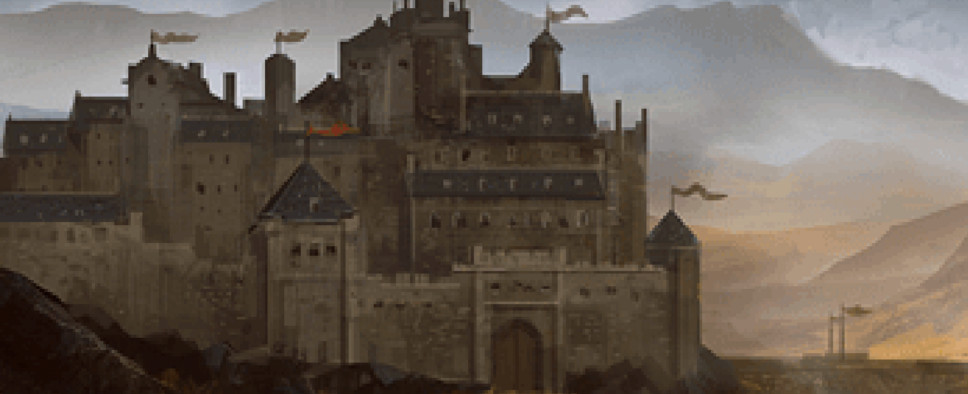Exiled Kingdoms Review
-
Category: ReviewsHits: 35541

Article Index
You can play the game solo with just your main character, but life gets much easier if you recruit some help. In every town you visit, you can pay for a mercenary to join you. Mercenaries don't gain XP, you can't equip them, and when they lose their health, they're dead for good, so they're only useful early in the game -- and barely even then -- when they're your only option. But eventually, you also unlock up to three possible companions: a Cleric, a Rogue, and a Warrior. You can only have one companion with you at a time, but you can equip them and build them up like your main character, making them very useful when adventuring, provided that you don't mind their drain on your XP.
During my main playthrough of Exiled Kingdoms, I used a Warrior with the Cleric companion. This was a great pairing since my character could kill everything while the Cleric kept me healed. But on the downside, I'm not sure how many viable builds there are for each class. For example, I started my Warrior as a sword-and-board tank but discovered that the extra protection from the shield didn't even close to being worth the amount of damage I was losing by not using a two-handed weapon, and so eventually I adjusted my build. Still, even if each class only has one realistic build, the four classes are different enough, and the game takes long enough, that there is plenty of replay value.
Gameplay
Exiled Kingdoms is played using an isometric view. Since it's an action RPG, its controls are simple. You can either use the WASD keys or the left mouse button to move, the spacebar or the left mouse button to attack, and the E key or the left mouse button to interact with things. You also can access up to four quick items (usually potions) by pressing the F1-F4 keys, and you can trigger skills and spells by pressing the 1-8 keys. You only control your character. Companions simply follow along and do their own thing (unless you talk to them and give them some battle orders, like telling them to stand still for a while). If you don't like the key bindings, then the game allows you to change them.
Mostly what you do in Exiled Kingdoms is kill stuff. The game currently includes over 40 map areas with a variety of environments and enemies. So there are wintery areas with polar bears and white wolves, forests with goblins and bandits, deserts with snakes and spiders, desolated areas with ghosts and skeletons, and lots more. The variety is nice, but the main difference between enemies is what sort of damage they do, rather than how you attack them, so they're largely interchangeable.
That being said, combat tends to be difficult. Exiled Kingdoms doesn't really give you a friendly road to travel. You have to hunt around for things you can kill, dungeons you can explore, and quests you can complete, and you have to run back to town a lot to heal up and sell stuff so you can continue on. To make matters more complicated, map areas respawn quickly, sometimes while you're still there (I'm thinking of you, sewer rats). So you have to fight your way to a dungeon, explore as much as you can, then leave and fight your way back to town, and then repeat. This requires a lot of unfortunate grinding, and it can make the game tedious at times.
The writing and quests are a little better than you usually see in an action RPG. Exiled Kingdoms is aware of other RPGs, and it knows what the cliches are, and it isn't afraid to play around with them. For example, at one point a town leader asks you to bring him the head of a monster that has been terrorizing his town, but when you deliver the actual head to him, he's surprised and disgusted and tells you that he just wanted you to kill the creature. There are also several quests where you have to make decisions. This usually comes down to picking one side over another (like choosing between rich slavers or downtrodden slaves), but you're also allowed to play the game in a "good" or "evil" way.
To make the dialogue more interesting, Exiled Kingdoms uses a lot of attribute checks, and it allows you to learn things and then use that knowledge in conversations. So you don't have to fight your way through everything. Sometimes diplomacy will see you through, and non-combat skills like Dungeoning and Gossip are also useful. The game also includes a few puzzles, but they're mostly of the lever-pulling variety, and aren't too difficult to solve.

